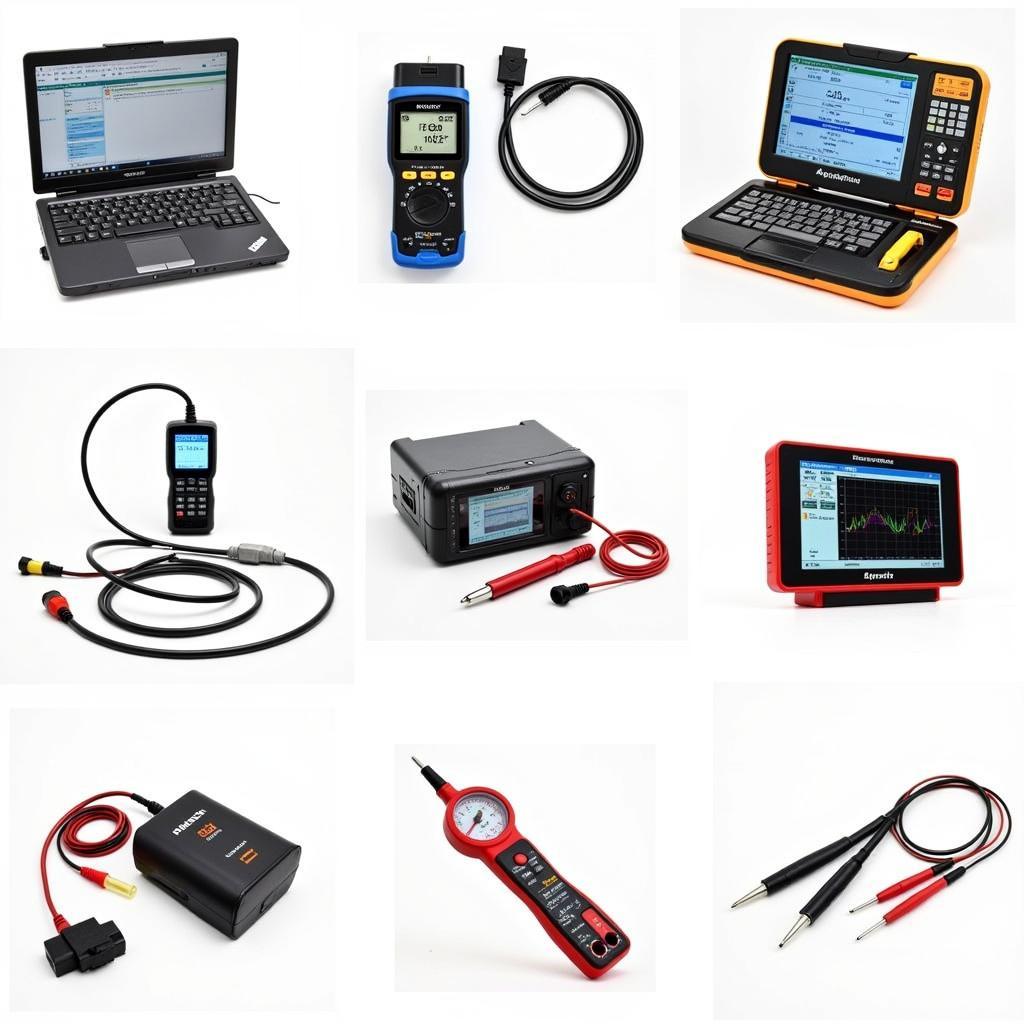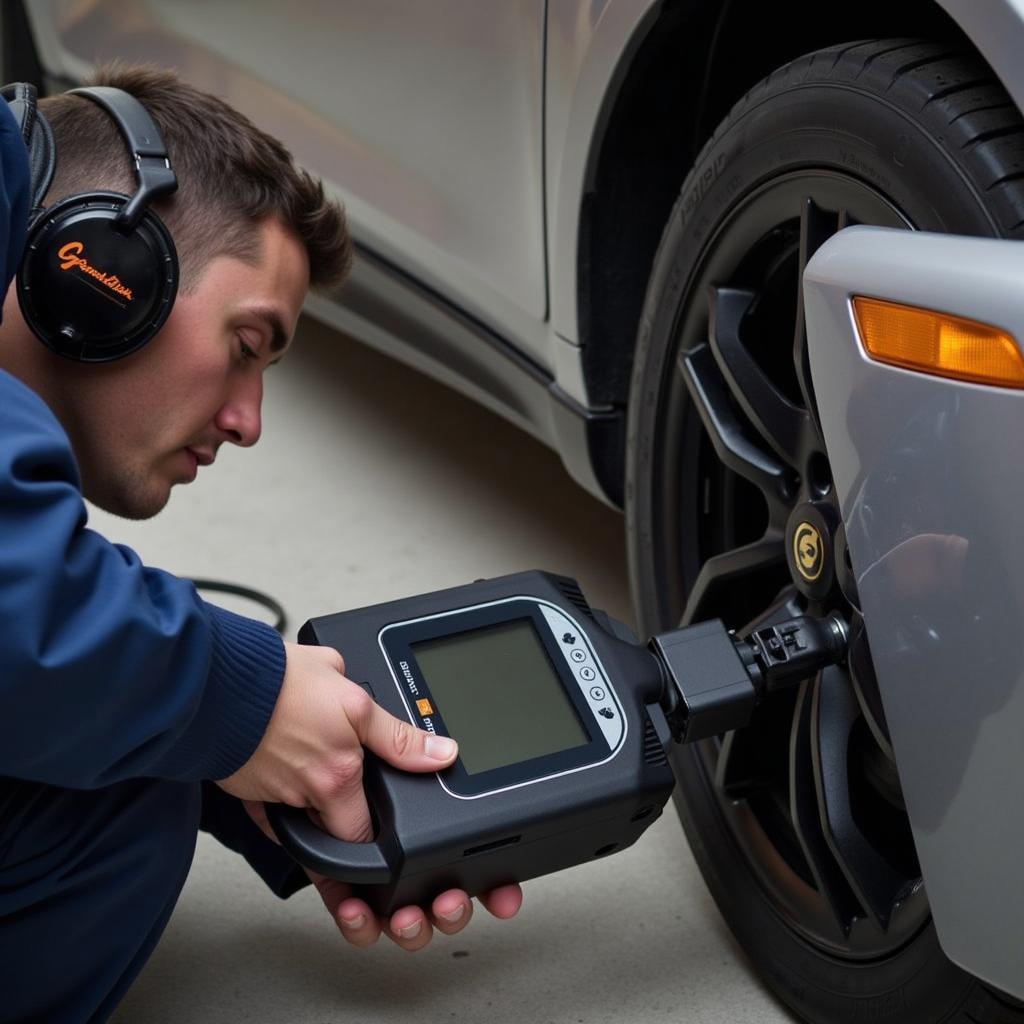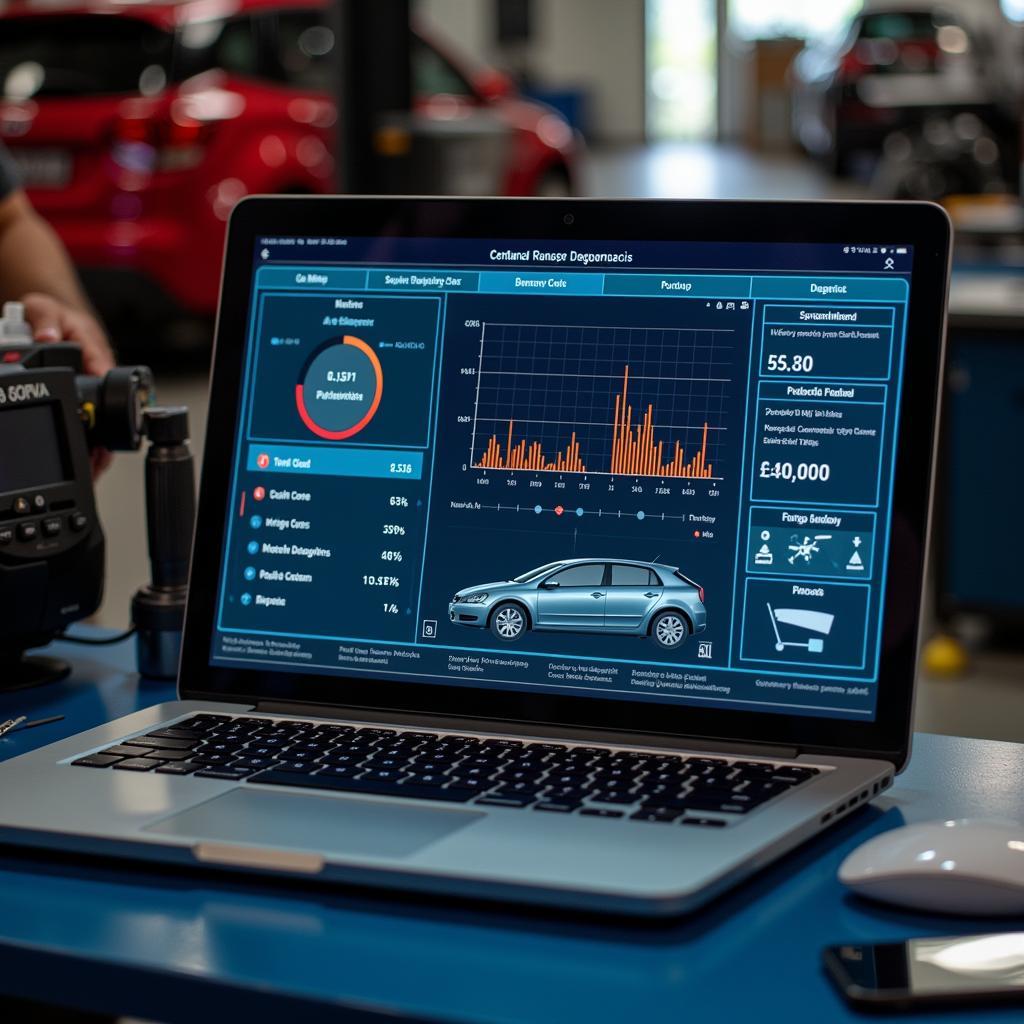As a car owner or mechanic, you understand that modern vehicles are complex machines that require specialized tools for accurate diagnosis and repair. Car Diagnostics Equipment has become indispensable for identifying and resolving issues quickly and efficiently. This comprehensive guide explores the world of car diagnostics equipment, providing valuable insights to help you make informed decisions for your automotive needs.
 Different Types of Car Diagnostic Equipment
Different Types of Car Diagnostic Equipment
Understanding the Importance of Car Diagnostics Equipment
Gone are the days when mechanics relied solely on their senses and experience to diagnose car problems. The increasing sophistication of automotive systems has made car diagnostics equipment essential for understanding the intricate workings of modern vehicles. These tools provide a window into a car’s electronic control units (ECUs), offering valuable data and insights into its health and performance.
Exploring Different Types of Car Diagnostics Equipment
Car diagnostics equipment encompasses a wide range of tools, each serving a specific purpose. Some of the most common types include:
1. OBD-II Scanners
OBD-II scanners are the cornerstone of modern car diagnostics. These handheld devices connect to a car’s OBD-II port, usually located under the dashboard, and retrieve diagnostic trouble codes (DTCs) stored in the vehicle’s ECUs.
-
Basic OBD-II Scanners: These entry-level scanners read and clear basic DTCs related to the engine and emissions systems.
-
Advanced OBD-II Scanners: Professional-grade scanners offer a wider range of capabilities, including live data streaming, actuator tests, and access to manufacturer-specific codes.
 Mechanic Using an OBD-II Scanner
Mechanic Using an OBD-II Scanner
2. Multimeters
Multimeters are versatile tools for measuring electrical properties like voltage, current, and resistance. They are essential for diagnosing electrical faults in various automotive systems.
autel car diagnostic equipment sales north west
3. Oscilloscopes
Oscilloscopes are advanced diagnostic tools that display the waveform of electrical signals, providing detailed information about the behavior of sensors, actuators, and other electrical components.
4. Pressure Gauges
Pressure gauges measure pressure in various automotive systems, such as the cooling system, fuel system, and brake system. They help identify leaks, blockages, and other pressure-related issues.
Factors to Consider When Choosing Car Diagnostic Equipment
Selecting the right car diagnostics equipment depends on several factors, including:
1. Budget and Intended Use
Consider your budget and how you plan to use the equipment. Basic OBD-II scanners are suitable for DIY enthusiasts, while professional mechanics require more advanced tools.
2. Vehicle Compatibility
Ensure the equipment is compatible with the make, model, and year of your vehicle or the vehicles you typically work on.
3. Features and Functionality
Evaluate the features offered by different models and choose those that align with your diagnostic needs.
 Car Diagnostic Software Interface
Car Diagnostic Software Interface
Tips for Using Car Diagnostics Equipment Effectively
-
Consult the Vehicle’s Service Manual: Before using any diagnostic equipment, familiarize yourself with the vehicle’s service manual for specific instructions and safety precautions.
-
Understand DTCs: Research and understand the meaning of DTCs before attempting any repairs.
-
Use Equipment Safely: Follow the manufacturer’s instructions and use appropriate safety gear when handling diagnostic equipment.
-
Keep Software Up-to-Date: Regularly update the software of your diagnostic equipment to ensure optimal performance and access the latest features.
diagnostics equipment for cars
Conclusion
Car diagnostics equipment has revolutionized the automotive industry, empowering car owners and mechanics with the tools to diagnose and repair vehicles accurately. By understanding the different types of equipment, considering key factors before making a purchase, and using the tools effectively, you can ensure optimal vehicle performance, reliability, and longevity.
FAQs about Car Diagnostic Equipment
1. What is the most important piece of car diagnostic equipment?
The most crucial piece of equipment is an OBD-II scanner, which allows you to read and interpret diagnostic trouble codes (DTCs) generated by your vehicle’s computer system.
2. Can I use a generic OBD-II scanner on any car?
Generic OBD-II scanners can read basic engine and emissions-related codes on most cars manufactured after 1996. However, for manufacturer-specific codes and advanced functions, you may need a more specialized scanner.
3. Do I need professional car diagnostic equipment for DIY repairs?
While professional-grade equipment offers more advanced features, basic OBD-II scanners and multimeters can be sufficient for many DIY repairs and diagnostics.
4. How often should I have my car diagnosed?
It’s generally recommended to have your car diagnosed annually or whenever you experience unusual performance issues, warning lights, or suspect a problem.
5. Where can I find reliable car diagnostic equipment?
Reputable automotive tool suppliers, online retailers, and some auto parts stores offer a variety of car diagnostic equipment for different needs and budgets.
car diagnostic equipment bristol
Still have questions?
Contact us via WhatsApp: +1(641)206-8880, or Email us at: [email protected]. Our team is available 24/7 to assist you.

Leave a Reply